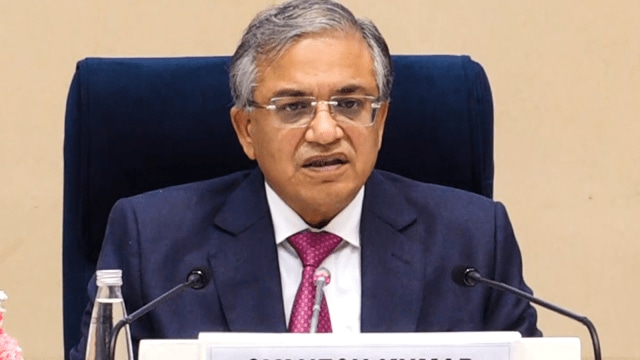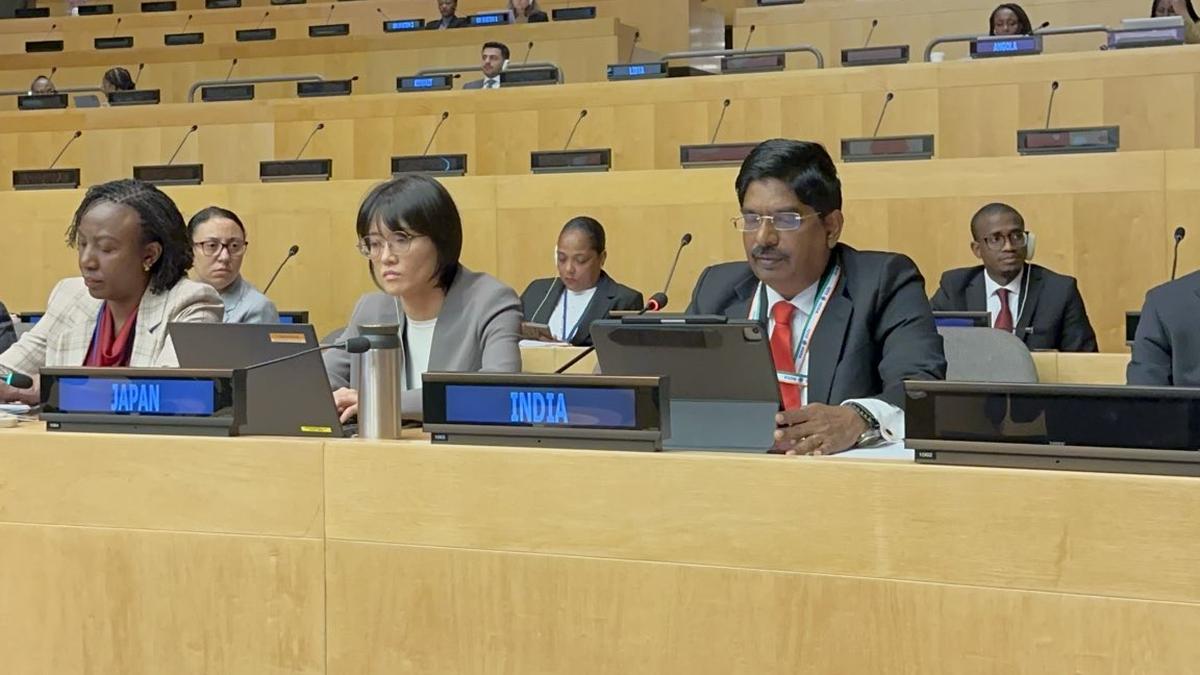ARTICLE AD BOX
 Chief Election Commissioner Gyanesh Kumar addresses a press conference, in New Delhi, Monday.
Chief Election Commissioner Gyanesh Kumar addresses a press conference, in New Delhi, Monday.
A nationwide Special Intensive Revision will be conducted in 12 states and six Union Territories from October 28 till February 7 next year, the Chief Election Commissioner Gyanesh Kumar announced on Monday. The second phase of the SIR will include five poll bound states and UTs – Tamil Nadu, Kerala, West Bengal, and Puducherry. However, this list excludes Assam, also due for polls next year, due to the ongoing process of National Register of Citizens (NRC).
The Election Commission stated 51 crore voters will be updated in the second phase.
The poll body has shared the full list of 12 states and Union Territories where SIR of electoral lists will be conducted. The voter list in these states will be frozen by tonight.
These states are:
- Andaman and Nicobar
- Chhattisgarh
- Goa
- Gujarat
- Kerala
- Lakshadweep
- Madhya Pradesh
- Puducherry
- Rajasthan
- Tamil Nadu
- Uttar Pradesh
- West Bengal
What will change in the electoral rolls after SIR?
- Special Intensive Revision of electoral rolls is a process through which the Election Commission updates the voter list.
- Many changes in the voter list occur due to migration of voters, registration of voters at more than one place, non removal of dead voters and wrongful inclusion of foreigners.
- New voters are added and bogus voters viz. dead or have relocated and might have appeared more than once in the list are removed from the list.
- The Election Commission informed that as per law, the voter list needs to be revised before every election or as per requirement.
- Any mistakes in the voter list, repetitions are also removed and the list is created afresh.
- The last SIR was done more than 21 years back between 2002-2004.
Who are the functionaries of SIR?
As per the Election Commission, there are roughly 1,000 electors on an average at a polling station.
- There is one Booth Level Officer (BLO) for every polling station.
- Each Assembly Constituency has many polling stations.
- One Electoral Registration Officer (ERO) is appointed for every constituency.
- The ERO is a Sub-divisional magistrate level officer, who as per law prepares the draft electoral rolls, receives and decides on claims and objections and prepares and publishes the final electoral rolls.
- Apart from these, Assistant Electoral Registration officers are appointed for every Tehsil or Block.
When will SIR be conducted?
- The Election Commission informed that for SIR Phase-2, training of officials will begin from 28th October to 3rd November, 2025.
- House to house enumeration phase is scheduled between 4th November to 4th December.
- On 9th December, 2025 draft electoral rolls will be published.
- Any claims or objections can be filed between 9th December 2025 to 8th January 2026.
- Hearing and verification of these claims will take place between 9th December 2025 to 31st January 2026.
- Final Electoral rolls will be published on 7th February, 2026.
Which documents are needed to be submitted for SIR?
- Any identity card or pension payment issued to pensioner or employee of Central or State Govt.
- Any Identity card or certificate issued by the Govt of India.
- Aadhaar card is not a valid proof of citizenship but can be submitted for SIR.
- Birth certificate
- Passport
- Matriculations or education certificate.
- Permanent Residence certificate issued by competent authority.
- Forest Rights certificate.
- OBC/SC/ST or any other caste certificate.
- National Register of Citizens (wherever applicable)
- Any land or house allotment certificate issued by the government.
- Family Register prepared by local authorities.
How will the SIR be conducted?
This includes 10 steps:
- Pre-Enumeration Phase: It includes training of BLOs, EROs and DEOs. BLOs will be responsible for manual matching of enumeration forms with last SIRs. It will be confirmed with computer matching by ECINET.
- Involvement of political parties: CEOs, DEOs and EROs will explain the SIR process in detail to political parties. Booth level agents will be trained to oversee the SIR process on the behalf of political parties.
- Enumeration Phase: BLOs are responsible for printing, distribution, matching and linking of enumeration forms.
- Publication of Draft Electoral Rolls: Draft rolls will contain all electors whose enumeration forms have been received. List of absent or shifted or dead voters not included in the draft list can be then added directly to the official website of the Commission.
- Issuance of Notice: Notices will be issued to electors who could not be matched. Their documents will be reverified.
- Receiving and deciding on claims and objectives: Any elector of BLA from any party can file any objection or a claim.
- Publication of final electoral rolls: After the process is complete, final electoral rolls will be published.
- Receiving and deciding on claims or objections: The DM or CEO of the state or the UT will hear and decide on claims and objections.
- Deployment of volunteers: Volunteers will be deployed by the Commission to oversee that the electors are not harassed at any point of the process.
- Rationalisation of polling stations: It includes No polling stations to have more than 1200 voters.
The draft roll would be published on December 9, and the final electoral roll will be released on February 7, 2026.









 English (US) ·
English (US) ·